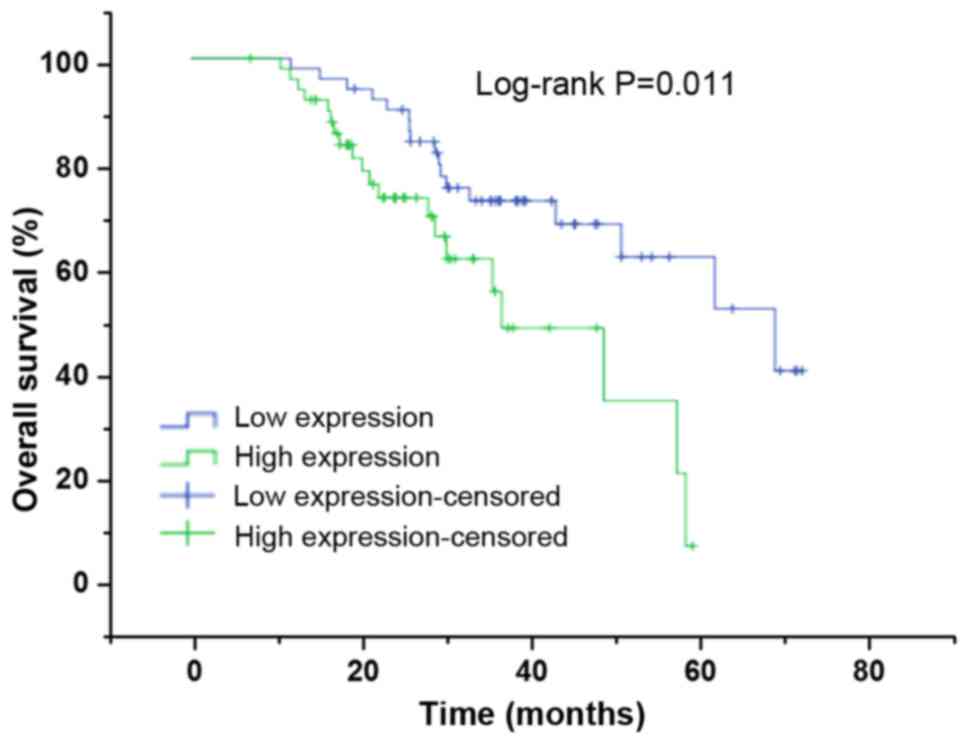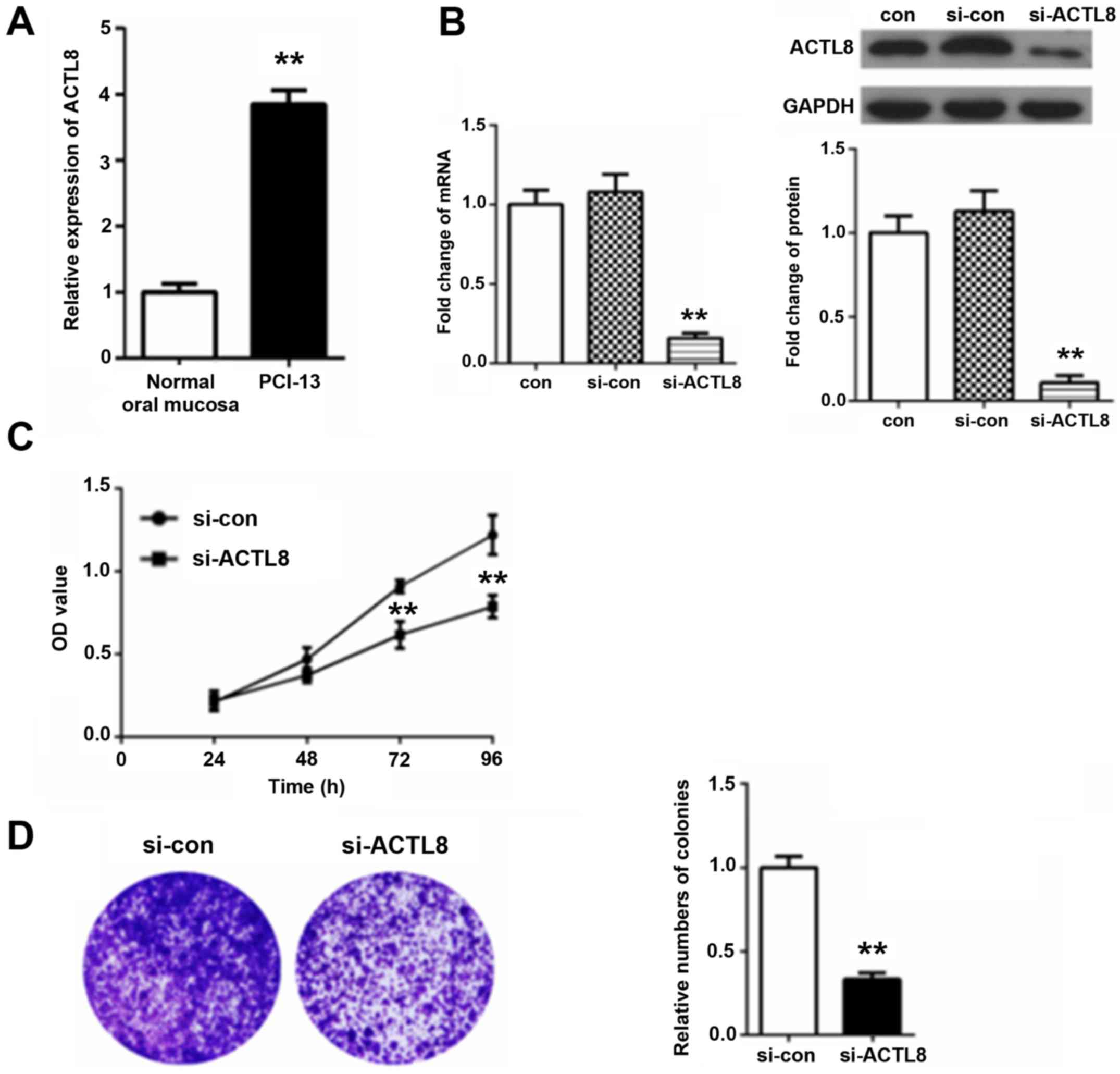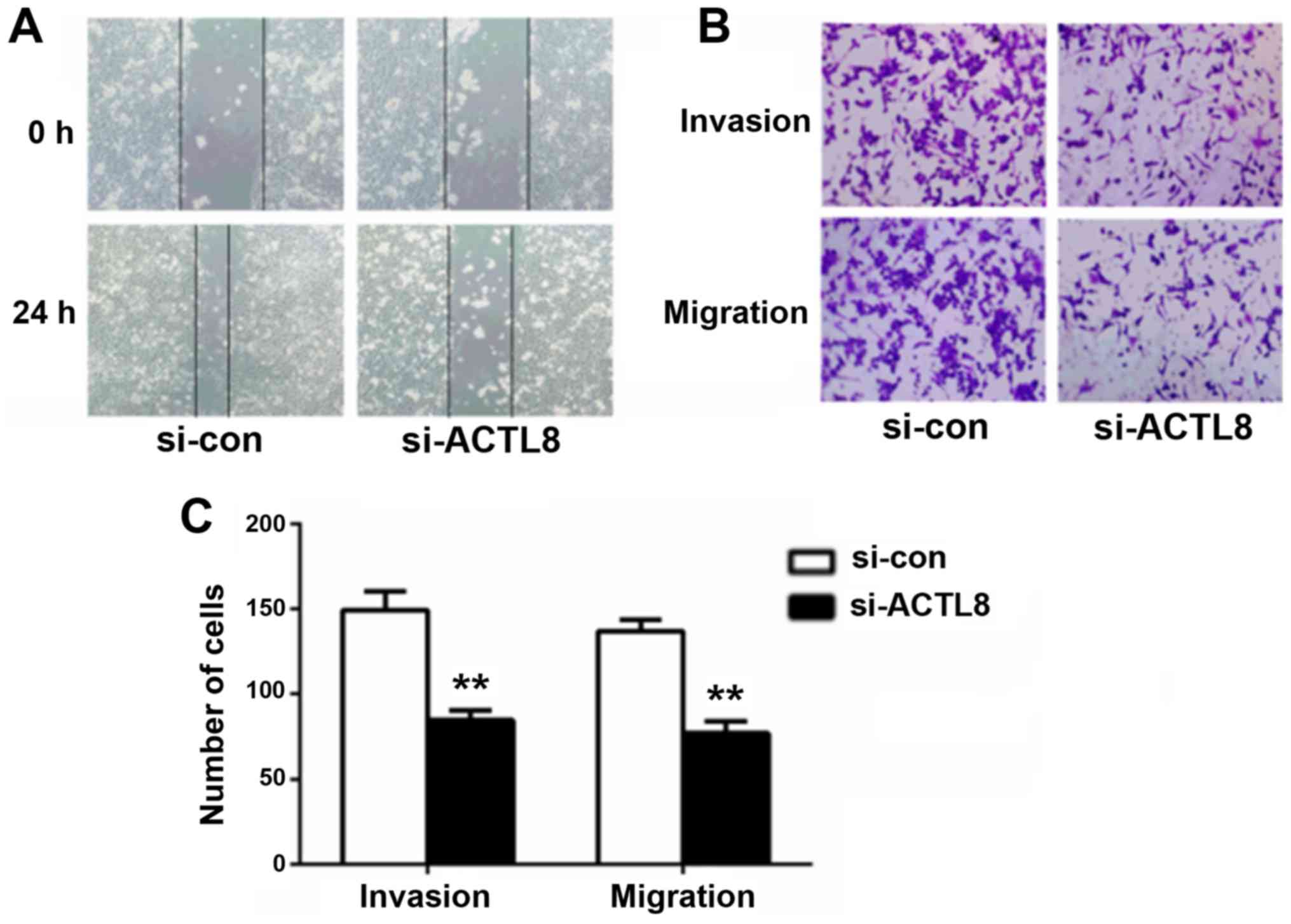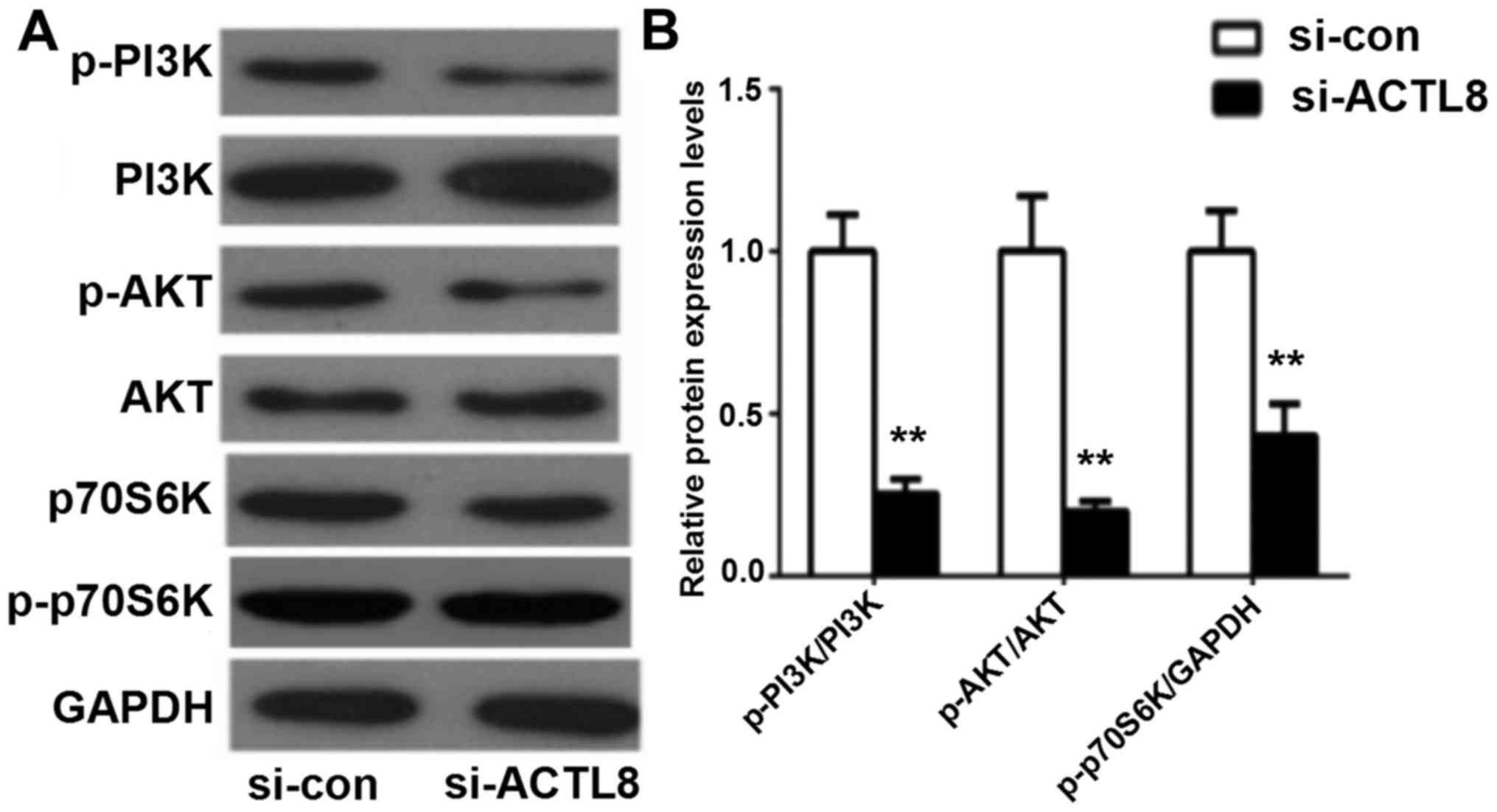|
1
|
Agrawal N, Frederick MJ, Pickering CR,
Bettegowda C, Chang K, Li RJ, Fakhry C, Xie TX, Zhang J, Wang J, et
al: Exome sequencing of head and neck squamous cell carcinoma
reveals inactivating mutations in NOTCH1. Science. 333:1154–1157.
2011. View Article : Google Scholar : PubMed/NCBI
|
|
2
|
Pries R, Nitsch S and Wollenberg B: Role
of cytokines in head and neck squamous cell carcinoma. Expert Rev
Anticancer Ther. 6:1195–1203. 2006. View Article : Google Scholar : PubMed/NCBI
|
|
3
|
Stacy DR, Ely K, Massion PP, Yarbrough WG,
Hallahan DE, Sekhar KR and Freeman ML: Increased expression of
nuclear factor E2 p45-related factor 2 (NRF2) in head and neck
squamous cell carcinomas. Head Neck. 28:813–818. 2006. View Article : Google Scholar : PubMed/NCBI
|
|
4
|
Scanlan MJ, Simpson AJ and Old LJ: The
cancer/testis genes: Review, standardization and commentary. Cancer
Immun. 4:12004.PubMed/NCBI
|
|
5
|
Phuphanich S, Wheeler CJ, Rudnick JD,
Mazer M, Wang H, Nuño MA, Richardson JE, Fan X, Ji J, Chu RM, et
al: Phase I trial of a multi-epitope-pulsed dendritic cell vaccine
for patients with newly diagnosed glioblastoma. Cancer Immunol
Immunother. 62:125–135. 2013. View Article : Google Scholar : PubMed/NCBI
|
|
6
|
Atanackovic D, Blum I, Cao Y, Wenzel S,
Bartels K, Faltz C, Hossfeld DK, Hegewisch-Becker S, Bokemeyer C
and Leuwer R: Expression of cancer-testis antigens as possible
targets for antigen-specific immunotherapy in head and neck
squamous cell carcinoma. Cancer Biol Ther. 5:1218–1225. 2006.
View Article : Google Scholar : PubMed/NCBI
|
|
7
|
Freitas M, Malheiros S, Stávale JN, Biassi
TP, Zamunér FT, de Souza Begnami M, Soares FA and Vettore AL:
Expression of cancer/testis antigens is correlated with improved
survival in glioblastoma. Oncotarget. 4:636–646. 2013. View Article : Google Scholar : PubMed/NCBI
|
|
8
|
Yao J, Caballero OL, Yung WK, Weinstein
JN, Riggins GJ, Strausberg RL and Zhao Q: Tumor subtype-specific
cancer-testis antigens as potential biomarkers and
immunotherapeutic targets for cancers. Cancer Immunol Res.
2:371–379. 2014. View Article : Google Scholar : PubMed/NCBI
|
|
9
|
Jin Y, Jin C, Wennerberg J, Mertens F and
Höglund M: Cytogenetic and fluorescence in situ hybridization
characterization of chromosome 1 rearrangements in head and neck
carcinomas delineate a target region for deletions within
1p11-1p13. Cancer Res. 58:5859–5865. 1998.PubMed/NCBI
|
|
10
|
Livak KJ and Schmittgen TD: Analysis of
relative gene expression data using real-time quantitative PCR and
the 2(-Delta Delta C(T)) method. Methods. 25:402–408. 2001.
View Article : Google Scholar : PubMed/NCBI
|
|
11
|
Giudice FS and Squarize CH: The
determinants of head and neck cancer: Unmasking the PI3K pathway
mutations. J Carcinog Mutagen. (Suppl 5):(pii): 0032013.PubMed/NCBI
|
|
12
|
Nohata N, Sone Y, Hanazawa T, Fuse M,
Kikkawa N, Yoshino H, Chiyomaru T, Kawakami K, Enokida H, Nakagawa
M, et al: miR-1 as a tumor suppressive microRNA targeting TAGLN2 in
head and neck squamous cell carcinoma. Oncotarget. 2:29–42. 2011.
View Article : Google Scholar : PubMed/NCBI
|
|
13
|
De Castro G, Dos Anjos CH, Lalami Y and
Awada A: Clinical trial design in advanced head and neck cancer:
From past experiences to future perspectives. Clin Invest.
2:473–481. 2012. View Article : Google Scholar
|
|
14
|
Le Tourneau C, Faivre S and Siu LL:
Molecular targeted herapy of head and neck cancer: Review and
clinical development challenges. Eur J Cancer. 43:2457–2466. 2007.
View Article : Google Scholar : PubMed/NCBI
|
|
15
|
Dhodapkar MV, Osman K, Teruya-Feldstein J,
Filippa D, Hedvat CV, Iversen K, Kolb D, Geller MD, Hassoun H,
Kewalramani T, et al: Expression of cancer/testis (CT) antigens
MAGE-A1, MAGE-A3, MAGE-A4, CT-7 and NY-ESO-1 in malignant
gammopathies is heterogeneous and correlates with site, stage and
risk status of disease. Cancer Immun. 3:92003.PubMed/NCBI
|
|
16
|
Balafoutas D, Zur HA, Mayer S, Hirschfeld
M, Jaeger M, Denschlag D, Gitsch G, Jungbluth A and Stickeler E:
Cancer testis antigens and NY-BR-1 expression in primary breast
cancer: Prognostic and therapeutic implications. BMC Cancer.
13:2712013. View Article : Google Scholar : PubMed/NCBI
|
|
17
|
Taylor M, Bolton LM, Johnson P, Elliott T
and Murray N: Breast cancer is a promising target for vaccination
using cancer-testis antigens known to elicit immune responses.
Breast Cancer Res. 9:R462007. View
Article : Google Scholar : PubMed/NCBI
|
|
18
|
Atanackovic D, Arfsten J, Cao Y, Gnjatic
S, Schnieders F, Bartels K, Schilling G, Faltz C, Wolschke C,
Dierlamm J, et al: Cancer-testis antigens are commonly expressed in
multiple myeloma and induce systemic immunity following allogeneic
stem cell transplantation. Blood. 109:1103–1112. 2007. View Article : Google Scholar : PubMed/NCBI
|
|
19
|
Atanackovic D, Altorki NK, Cao Y, Ritter
E, Ferrara CA, Ritter G, Hoffman EW, Bokemeyer C, Old LJ and
Gnjatic S: Booster vaccination of cancer patients with MAGE-A3
protein reveals long-term immunological memory or tolerance
depending on priming. Proc Natl Acad Sci USA. 105:1650–1655. 2008.
View Article : Google Scholar : PubMed/NCBI
|
|
20
|
Fourcade J, Sun Z, Pagliano O, Chauvin JM,
Sander C, Janjic B, Tarhini AA, Tawbi HA, Kirkwood JM, Moschos S,
et al: PD-1 and Tim-3 regulate the expansion of tumor
antigen-specific CD8+ T cells induced by melanoma
vaccines. Cancer Res. 74:1045–1055. 2014. View Article : Google Scholar : PubMed/NCBI
|
|
21
|
Postow MA, Luke JJ, Bluth MJ, Ramaiya N,
Panageas KS, Lawrence DP, Ibrahim N, Flaherty KT, Sullivan RJ, Ott
PA, et al: Ipilimumab for patients with advanced mucosal melanoma.
Oncologist. 18:726–732. 2013. View Article : Google Scholar : PubMed/NCBI
|
|
22
|
Britschgi A, Andraos R, Brinkhaus H,
Klebba I, Romanet V, Müller U, Murakami M, Radimerski T and
Bentires-Alj M: JAK2/STAT5 Inhibition circumvents resistance to
PI3K/mTOR blockade: A rationale for cotargeting these pathways in
metastatic breast cancer. Cancer Cell. 22:796–811. 2012. View Article : Google Scholar : PubMed/NCBI
|
|
23
|
Yang S, Ji Q, Chang B, Wang Y, Zhu Y, Li
D, Huang C, Wang Y, Sun G, Zhang L, et al: STC2 promotes head and
neck squamous cell carcinoma metastasis through modulating the
PI3K/AKT/Snail signaling. Oncotarget. 8:5976–5991. 2017.PubMed/NCBI
|
|
24
|
Zheng W, Nagaraju G, Liu Z and Liu K:
Functional roles of the phosphatidylinositol 3-kinases (PI3Ks)
signaling in the mammalian ovary. Mol Cell Endocrinol. 356:24–30.
2012. View Article : Google Scholar : PubMed/NCBI
|
|
25
|
Okkenhaug K and Vanhaesebroeck B: PI3K in
lymphocyte development, differentiation and activation. Nat Rev
Immunol. 3:317–330. 2003. View
Article : Google Scholar : PubMed/NCBI
|
|
26
|
Yuan TL and Cantley LC: PI3K pathway
alterations in cancer: Variations on a theme. Oncogene.
27:5497–5510. 2008. View Article : Google Scholar : PubMed/NCBI
|
|
27
|
Zhao XF and Gartenhaus RB: Phospho-p70S6K
and cdc2/cdk1 as therapeutic targets for diffuse large B-cell
lymphoma. Expert Opin Ther Targets. 13:1085–1093. 2009. View Article : Google Scholar : PubMed/NCBI
|
|
28
|
Wang F, Qiu Y, Zhang HM, Hanson P, Ye X,
Zhao G, Xie R, Tong L and Yang D: Heat shock protein 70 promotes
coxsackievirus B3 translation initiation and elongation via
Akt-mTORC1 pathway depending on activation of p70S6K and Cdc2. Cell
Microbiol. 2017. View Article : Google Scholar :
|



















